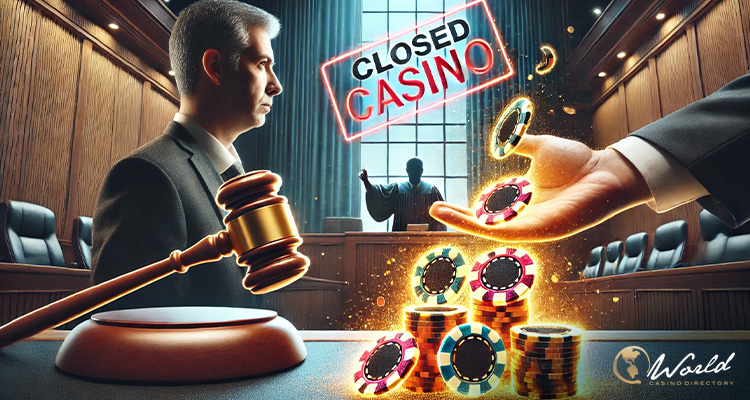A New Jersey man’s attempt to redeem nearly $60,000 worth of casino chips from a shuttered Atlantic City casino has ended in disappointment, as a state appeals court determined the chips were never meant to be in circulation.
Keith Hawkins, who bought the 389 chips for $59,500 through an online auction in 2022, had hoped to redeem them through the New Jersey State Treasury Department’s Unclaimed Property Administration (UPA). The chips were from the now-defunct Playboy Hotel and Casino, which operated briefly between 1981 and 1984 in Atlantic City. But both the UPA and the state’s appellate court ultimately deemed the chips invalid for redemption, according to USA Today.
Origins of the Chips Raise Red Flags
While Hawkins claimed he was unaware of the chips’ backstory, an investigation by the New Jersey State Police uncovered a troubling history. Following the casino’s closure in 1984, funds had been deposited with the UPA to honor legitimate outstanding chips issued during the casino’s operation. However, the chips Hawkins acquired were not part of that batch.
According to court documents, the Playboy Casino had hired a third-party firm to destroy all remaining unissued chips after its closure. But “a former employee of the company pilfered several boxes of unused chips ‘sometime around 1990’ and put them in a bank deposit box,” the ruling stated. That same employee, whose identity was withheld, later filed for bankruptcy and abandoned the deposit box. The bank eventually drilled open the box in 2010 and took possession of its contents.
Twelve years later, in 2022, those very chips made their way to a public auction, where Hawkins unknowingly purchased them.
Court Cites Longstanding Legal Precedents
After his claim was rejected by the UPA in June 2023, Hawkins challenged the decision in court, arguing that the agency lacked sufficient evidence and acted “arbitrarily and capriciously.” But the appellate panel remained unconvinced, ruling on April 1 that Hawkins had no legal basis to receive a payout.
“We are satisfied that the evidence in the record supports UPA’s conclusion that the chips presented by claimant were ‘unissued Playboy gaming chips that were to be destroyed’ and, therefore, ‘ineligible for redemption,’” the court said in its opinion.
The judges referred to an earlier 1991 legal precedent, noting that only chips actually issued by the casino to its patrons during its brief tenure could be honored under UPA policy.
Playboy Casino’s Checkered History
The Playboy Hotel and Casino, once backed by Hugh Hefner, was a short-lived venture in Atlantic City’s gaming landscape. After its three-year run ended in 1984, Donald Trump acquired the property for $64 million. It underwent a series of rebrandings — first as the Trump Regency and later as Trump’s World Fair — before finally closing in 1999.
The Playboy brand had attempted to expand its casino empire during that era, with properties in Las Vegas, London, and the Bahamas, all of which have since closed.
Following its Atlantic City closure, the Playboy Casino transferred funds to the state’s UPA to ensure that legitimate claims could be paid. At the same time, all chips not already in circulation were ordered to be destroyed — a step that, had it been fully carried out, would have prevented the controversy surrounding Hawkins’ claim.
A Costly Mistake Rooted in Misconduct
While Hawkins insists he had no idea the chips he purchased were part of a batch that had been stolen decades earlier, the court maintained that their illicit origin rendered them non-redeemable.
Adding another twist to the strange saga, it was revealed that similar Playboy chips had surfaced in 2008 during construction in Mississippi. Thousands were discovered beneath a concrete slab near the company’s old offices. Though most ended up as novelty items on auction platforms like eBay, those chips — much like Hawkins’ — were also never eligible for cash redemption.



